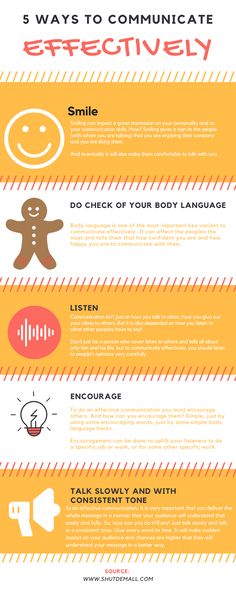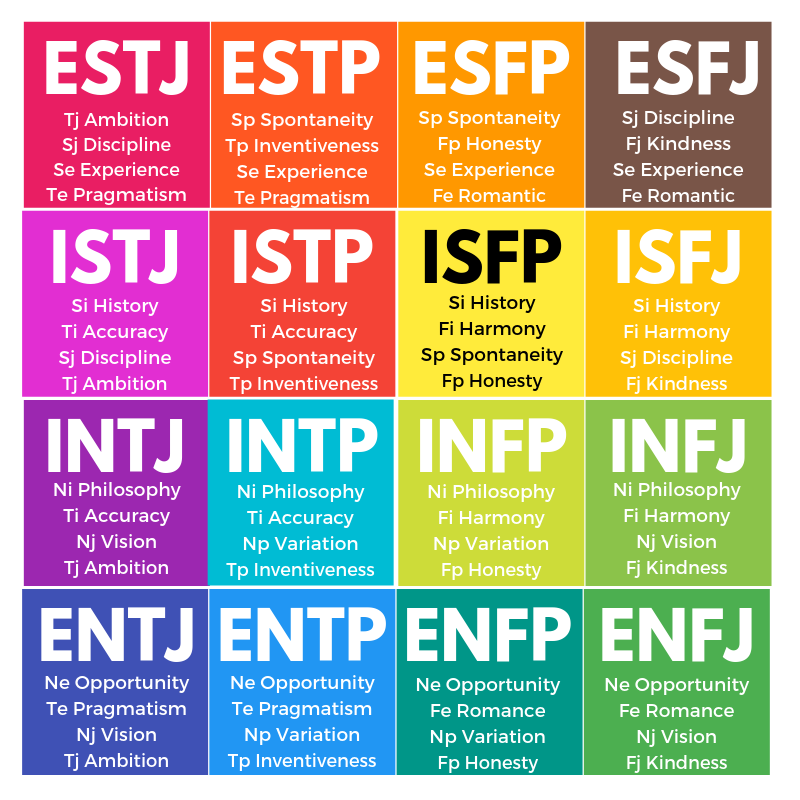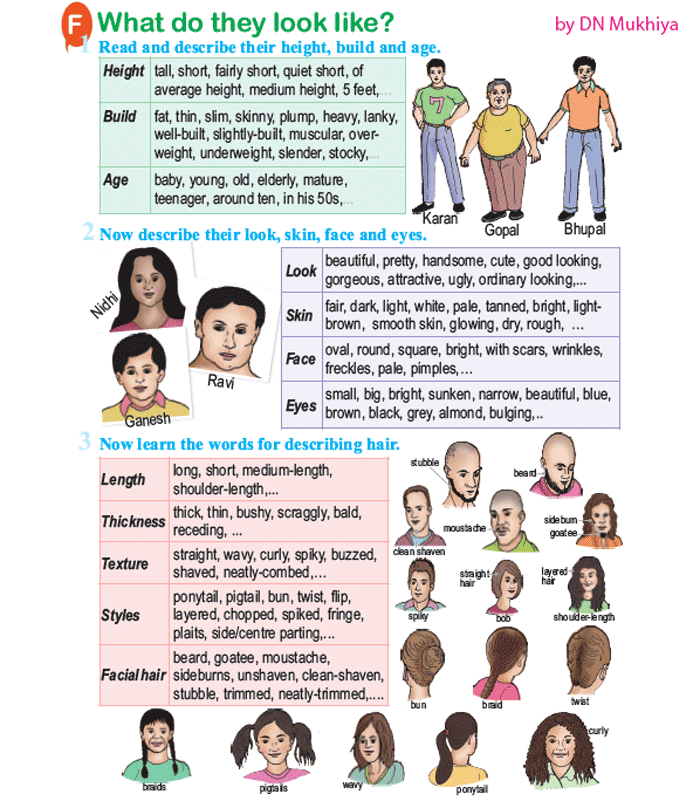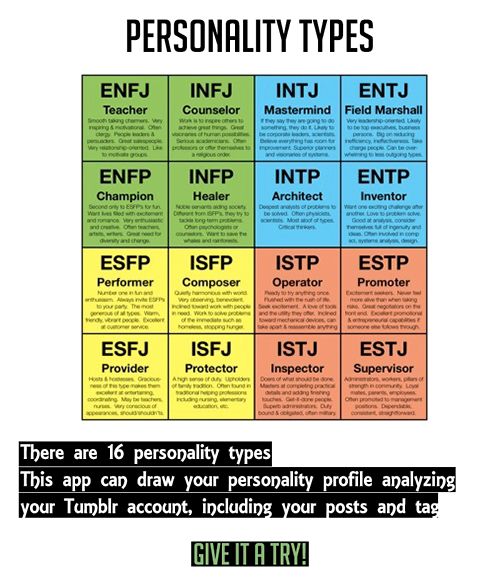How to best communicate
10 Ways to Improve Your Communication Skills
Posted to:
Topics: Professional Development
Years ago, The Conference Board of Canada, an independent, not-for-profit applied research organization, developed the Employability Skills 2000+, which lists the critical skills that employees need to succeed in the workplace. Communication skills, tops the list of fundamental skills needed to succeed in the workplace. A decade-and-a-half later, with the rise of social media networking and texting, communication is becoming more casual, even in situations where more formal ways of communicating are required. What this means is that people from the younger generation, may not know or even understand the importance of effective communication skills in the workplace. When you take a look at the greatest leaders, one of the traits they possess, is the ability to communicate effectively, which underscores the importance of communication skills.
There are specific things to do that can improve your communication skills:
1. Listen, listen, and listen. People want to know that they are being heard. Really listen to what the other person is saying, instead of formulating your response. Ask for clarification to avoid misunderstandings. At that moment, the person speaking to you should be the most important person in your life. Another important point is to have one conversation at a time. This means that if you are speaking to someone on the phone, do not respond to an email, or send a text at the same time. The other person will know that she doesn’t have your undivided attention.
2. Who you are talking to matters. It is okay to use acronyms and informal language when you are communicating with a buddy, but if you are emailing or texting your boss, “Hey,” “TTYL” or any informal language, has no place in your message. You cannot assume that the other person knows what the acronym means. Some acronyms have different meanings to different people, do you want to be misunderstood? Effective communicators target their message based on who they are speaking to, so try to keep the other person in mind, when you are trying to get your message across.
3. Body language matters. This is important for face-to-face meetings and video conferencing. Make sure that you appear accessible, so have open body language. This means that you should not cross your arms. And keep eye contact so that the other person knows that you are paying attention.
4. Check your message before you hit send. Spell and grammar checkers are lifesavers, but they are not foolproof. Double check what you have written, to make sure that your words are communicating the intended message.
5. Be brief, yet specific. For written and verbal communication, practice being brief yet specific enough, that you provide enough information for the other person to understand what you are trying to say. And if you are responding to an email, make sure that you read the entire email before crafting your response. With enough practice, you will learn not to ramble, or give way too much information.
6.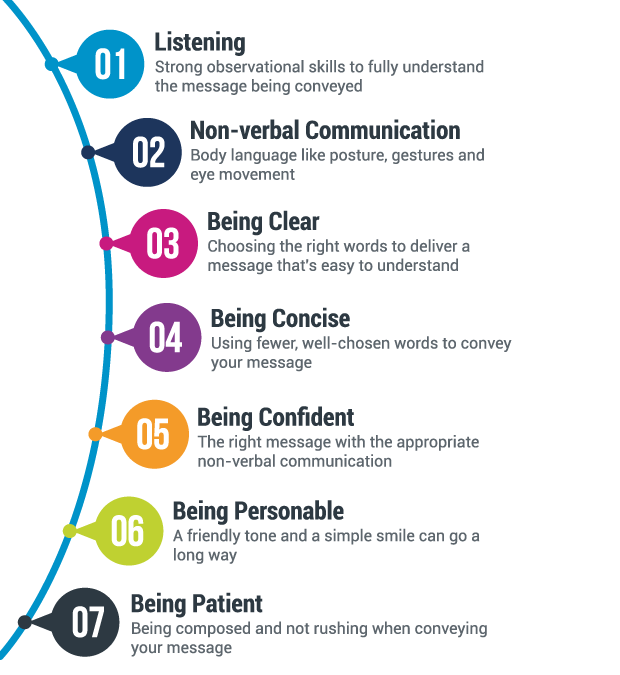 Write things down. Take notes while you are talking to another person or when you are in a meeting, and do not rely on your memory. Send a follow-up email to make sure that you understand what was being said during the conversation.
Write things down. Take notes while you are talking to another person or when you are in a meeting, and do not rely on your memory. Send a follow-up email to make sure that you understand what was being said during the conversation.
7. Sometimes it’s better to pick up the phone. If you find that you have a lot to say, instead of sending an email, call the person instead. Email is great, but sometimes it is easier to communicate what you have to say verbally.
8. Think before you speak. Always pause before you speak, not saying the first thing that comes to mind. Take a moment and pay close attention to what you say and how you say it. This one habit will allow you to avoid embarrassments.
9. Treat everyone equally. Do not talk down to anyone, treating everyone with respect. Treat others as your equal.
10. Maintain a positive attitude and smile. Even when you are speaking on the phone, smile because your positive attitude will shine through and the other person will know it.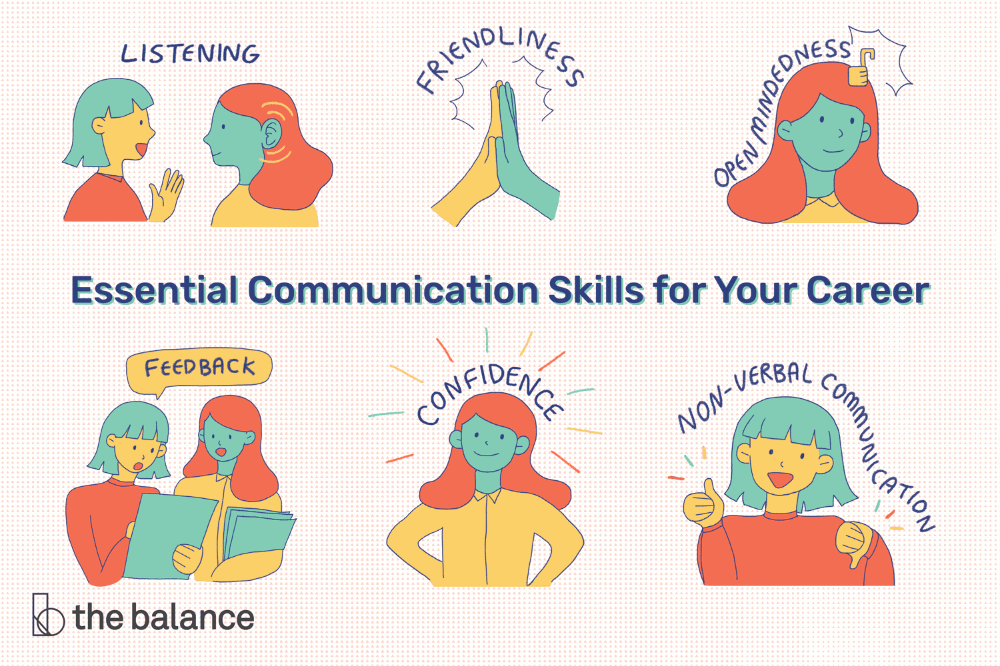 When you smile often and exude a positive attitude, people will respond positively to you.
When you smile often and exude a positive attitude, people will respond positively to you.
Communicating effectively is a teachable skill, therefore following a few of the tips outlined above, will enable you to hone up on your communication skills.
Share
21 Ways to Communicate Effectively — Relavate
Have you ever considered how effective your communication is? We can always improve our ability to communicate, so here are 21 ways to communicate effectively.
Here are some tips to improve communication to help reduce misunderstandings or conflicts and to increase positive and helpful interactions:
1. Take time to think before speaking.Saying the wrong thing, even at the right time, can seriously injure a person. Think, for example, of a doctor misspeaking an order for medication that turns out to be wrong and hurts her patient. Saying the wrong thing in a court of law could send an innocent person to jail for a long, long time.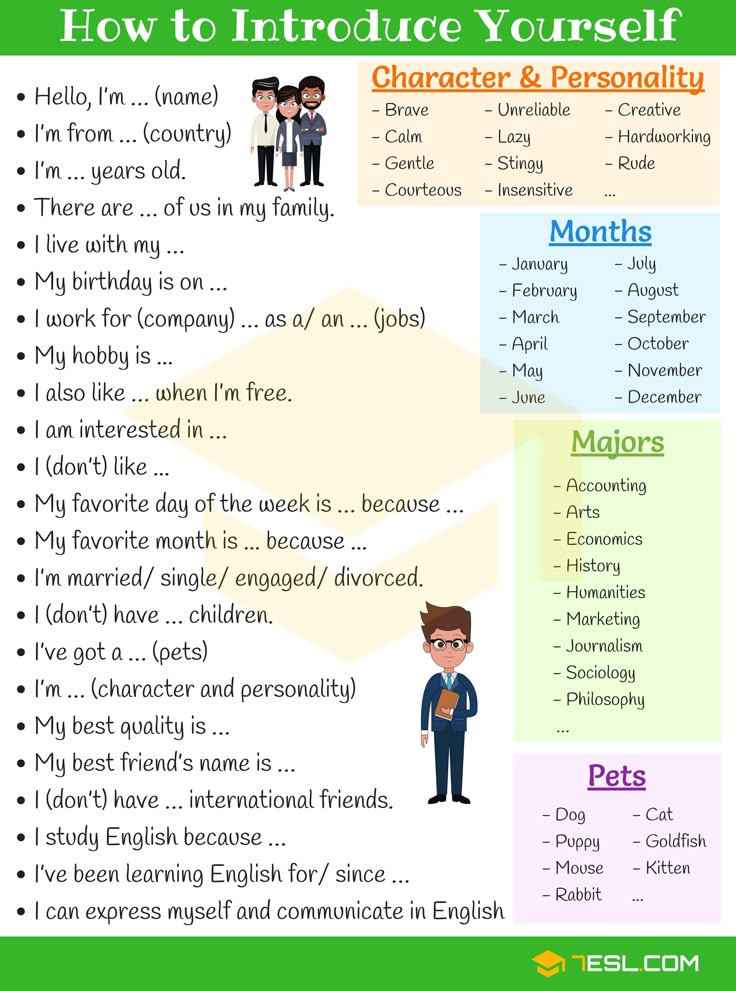 Since words have such power, it is very important how we communicate. Therefore, take time to listen, be careful how you answer and take time before speaking.
Since words have such power, it is very important how we communicate. Therefore, take time to listen, be careful how you answer and take time before speaking.
2. Be slow to speak and quick to listen.
Take time to focus on what the other person is doing and saying. Most of us hear but do not really listen. We tend to focus our minds on what we are going to say or how we will answer rather than focusing upon and understanding what the speaker is trying to communicate. Check out How to Improve Your Listening Skills.
3. Speak to help the listener.Communicate with the intention of helping the listener. There are many reasons why people talk. Sometimes it's merely to test the relationship, as often happens with small talk. There are those who think out loud, so as a listener you just happen to be present as they are trying to process their thoughts. Other times it's to present information, for whatever the reason. Still other occasions the speaker is communicating a need for an answer or assistance.
If it's small talk then you can help the listener by presenting something to the conversation that brings value to it and the other person. If you are not sure what the point of the talk is, then simply and politely ask for clarification. Such a thing can be very helpful with someone who presents something that might be a need. A good habit to get into in scenarios like that is to ask, "Are you telling me this to bounce ideas off of me or because you are asking me for my help?" For more insight, take a look at this article in Forbes: 5 Questions You Can Ask Instead of 'How Are You?' Better yet, consider how eliminating small talkis better for you and can increase your happiness.
Regardless of the situation, try to keep in mind how listening to the speaker can bring value to the other person and to the engagement.
4. Speak with straightforwardness.We often tend to play games with people by not being open and honest. This is a practice for those who have learned to be passive aggressive.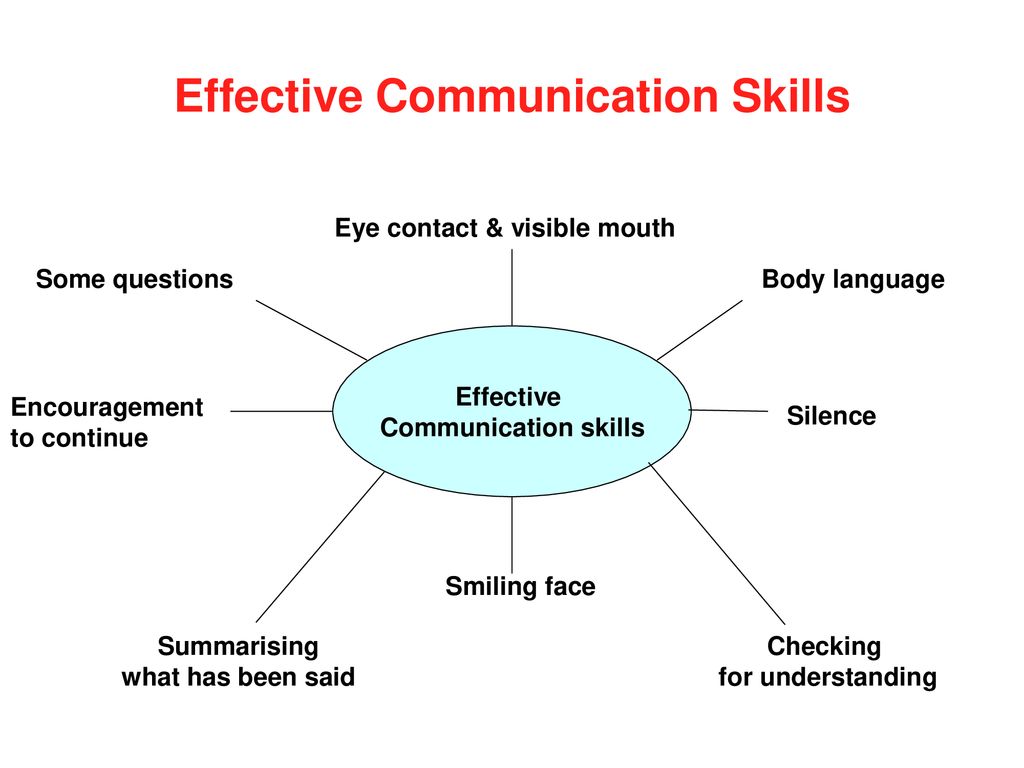 However, the people we admire the most are those who are honest and truthful. Men or women considered to be leaders, or have charisma, or are given high respect are those who can speak with candor.
However, the people we admire the most are those who are honest and truthful. Men or women considered to be leaders, or have charisma, or are given high respect are those who can speak with candor.
Speaking candidly does not mean speaking harshly, rudely or in a way that can harm. Learning to speak the truth with tact or finesse will give you freedom in your ability to work with people and reward you with positive regard from others.
5. Be aware that non-verbal communication is always at work.Non-verbal communication may speak louder than words, but they are not as distinct as words. Non-verbal communication includes:
6. Recognize the three "V's" in spoken communication:Verbal - is obviously the spoken word. However, as William Vermeulen pointed out in his seminars, "Most people concentrate only on the verbal element assuming this to be the message when it is only part of the whole message.
 "
"Vocal - which includes the intonation, projection, and resonance.
Visual: what people see when you communicate, such as motion and expression of your body and face. Visual images convey conscious and unconscious messages. Body language can have the effect of positively enhancing your speech or significantly diminishing it.
As the saying goes, "Say what you mean and mean what you say." It is very important to understand that words have power. A good habit to get into is thinking through what you intend to say to be sure that is indeed what you mean to say. The level of verbal precision is based on the level of importance at the moment. Obviously, a major in the military will need to speak with precision when ordering an assault on the enemy; whereas there is hardly a need for verbal precision when playing tag with your daughter.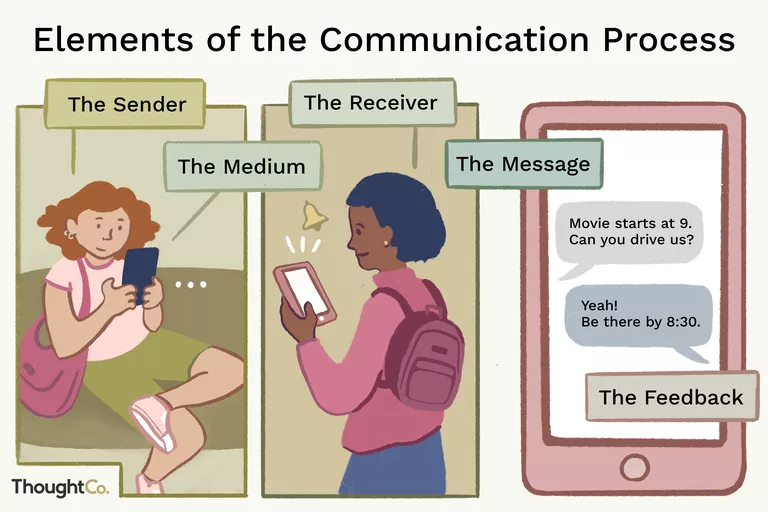 At the same time, saying the right thing at the wrong time can damage the situation or the relationship.
At the same time, saying the right thing at the wrong time can damage the situation or the relationship.
8. When needed, be firm but tactful.
Learn to use words that are firm but diplomatic even when correcting opponents. You can be truthful without being tacky.
9. Make good use of questions.The person who asks the questions is often the person in control of the conversation. However, control isn’t necessarily the objective. Rather, using good questions will get to the heart of the issue and help engage people in the process of dialog and communication. Ask until there is clarification by using the “who-what-when-where-how" and sometimes "why” questions.
10. Look for teachable moments, clarification, or self-discovery.Do this by stopping the other person at critical points and asking what he or she is thinking.
11. Look for the moment of silent registry.This is the moment at which a person seems to freeze and ponder what is being said. That is often the place at which the person(s) is engaged, something you have said has hit a chord and resonated with her or him.
That is often the place at which the person(s) is engaged, something you have said has hit a chord and resonated with her or him.
However, don't use silence to frustrate the other person. If the conversation is becoming more difficult than you are able to bear at that time, then explain why you are hesitant to talk and then close the discussion.
12. Find out in advance what an arranged conference is about.If you are asked to meet with someone and you suspect it is not merely for a fun or social occasion, then ask if the other person to do you the courtesy of telling you in advance the purpose of the meeting.
13. Record important matters.In some contexts, this is crucial such as when personally meeting an opponent or antagonist, or during a very important committee or team meeting. Winston Churchill was a stickler for this practice. One of his maxims was, “I am a strong believer in transacting official business by the written word.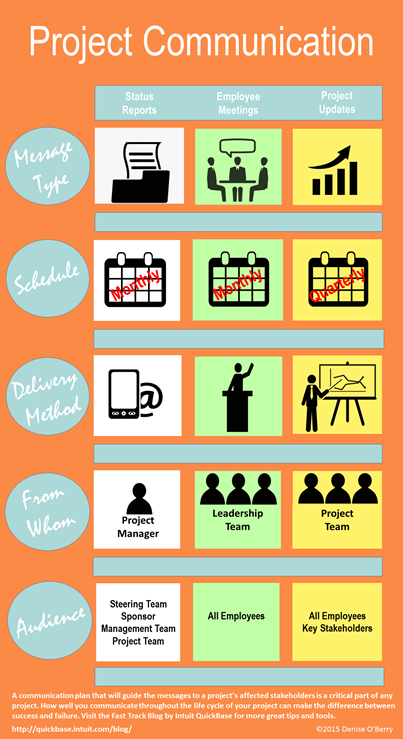 ..Let it be clearly understood that all directions emanating from me are made in writing, or should be immediately confirmed in writing and that I do not accept responsibility for matters relating to national defense, on which I am alleged to have given decisions unless they are recorded in writing.” (Stephen Hayward, Churchill on Leadership; p. 110)
..Let it be clearly understood that all directions emanating from me are made in writing, or should be immediately confirmed in writing and that I do not accept responsibility for matters relating to national defense, on which I am alleged to have given decisions unless they are recorded in writing.” (Stephen Hayward, Churchill on Leadership; p. 110)
People who interrupt do so for a variety of reasons, few of which bring value to or enhance the conversation. Some interrupt because they are not listening. They need to listen or your time and energy are wasted. Some interrupt because they have little respect for you or others in the conversation. When they are like that, it's a matter of contempt for you. There can hardly be a mutually beneficial interchange when there is little to no respect. They need to be respectful.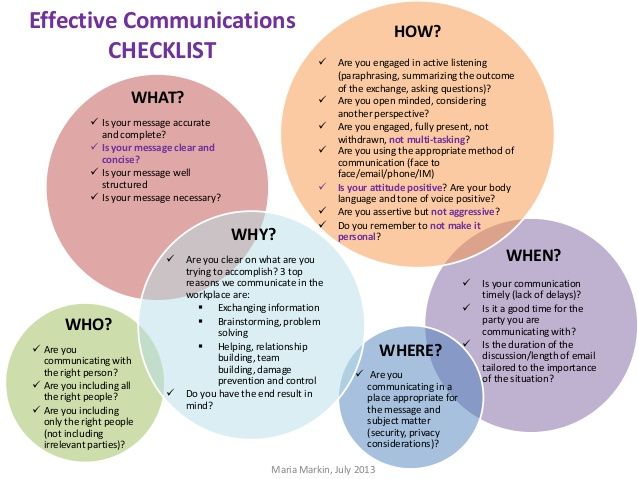 Some interrupt because they are too arrogant to believe you have anything of interest or importance to share. They need a measure of humility to be able to interact with others in any useful and meaningful way.
Some interrupt because they are too arrogant to believe you have anything of interest or importance to share. They need a measure of humility to be able to interact with others in any useful and meaningful way.
Should the other person continue to interrupt, then end the conversation and walk away.
16. Do not let unresolved matters go unanswered.Rarely do unresolved matters simply go away. Often times these issues come back to haunt your relationship later on. If you are unable to resolve any challenges during your conversation then make an appointment to discuss it later. It is usually best to make that very matter the singular priority of your follow-up talk.
17. Use paraphrasing.If a matter is important enough then paraphrase back what was said or have your listener(s) paraphrase back to you what you have said. This can be a valuable tool to determine if there is an acceptable understanding between the parties.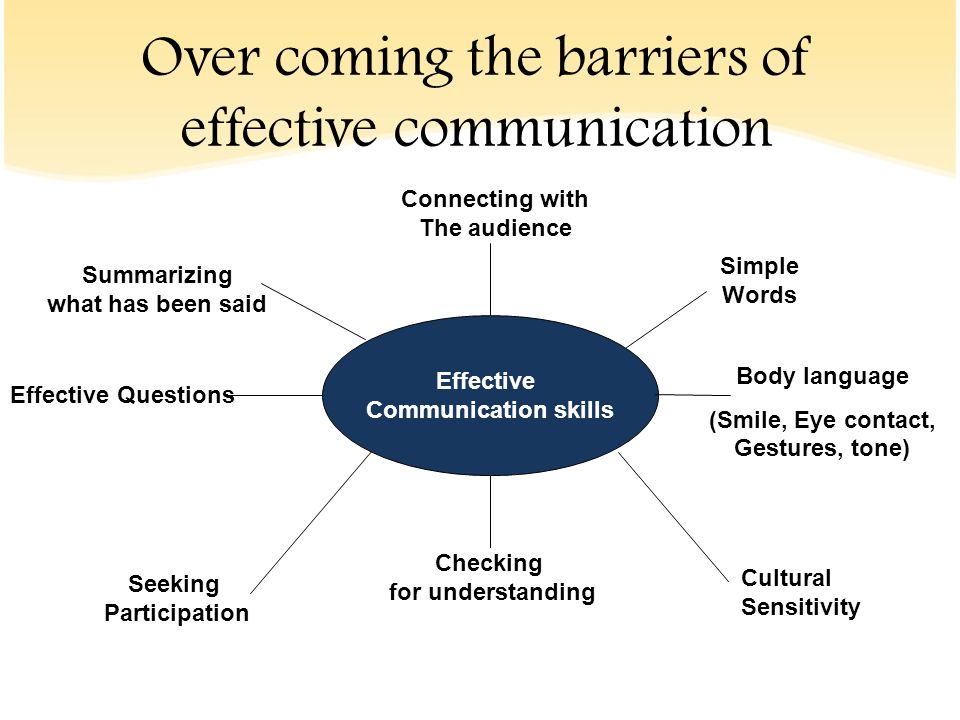 It can be helpful to make sure you are understanding what is said by rephrasing what the other person said and asking him or her if that is what indeed was said or meant.
It can be helpful to make sure you are understanding what is said by rephrasing what the other person said and asking him or her if that is what indeed was said or meant.
In meetings, take time at the end to summarize what was covered and who is assigned various tasks.
19. Get help when communicating with another person is difficult.If you consistently have difficulty communicating with another person then enlist the help of one or two others to help improve communication. Often times this can resolve the challenge between regularly conflicted people. Be aware that it does not always mean there will be a resolution.
20. Give the big picture, but do not overuse generalizations.Follow abstract concepts with concrete examples. As communication specialists advise: paint a verbal picture and connect the dots.
21. Get rid of distractions.Be intentional about putting away things that can rob your conversation of the level of value it deserves. Turning off your cell phone, closing your tablet or computer, taking the earpiece(s) off your head are ways to do this. Not only can you not give mindful attention to the discourse with other things vying for your mind's attention, these distractions actually demonstrate to others that they are not important enough to have a meaningful conversation.
Turning off your cell phone, closing your tablet or computer, taking the earpiece(s) off your head are ways to do this. Not only can you not give mindful attention to the discourse with other things vying for your mind's attention, these distractions actually demonstrate to others that they are not important enough to have a meaningful conversation.
On the positive side, there are benefits when you put away anything that can intrude upon your discourse with others. Benefits include, but not limited to:
Being able to converse in a more meaningful way.
Showing mutual respect, which has a strong probability of elevating your relationship.
Increasing the chances of actually getting something accomplished.
You are able to better focus on each other and upon the topic or agenda.
You can remember the conversation and most likely the salient points at a later time.
These are only a few tips to improve communication that could reduce misunderstandings or conflicts and increase positive and helpful interactions.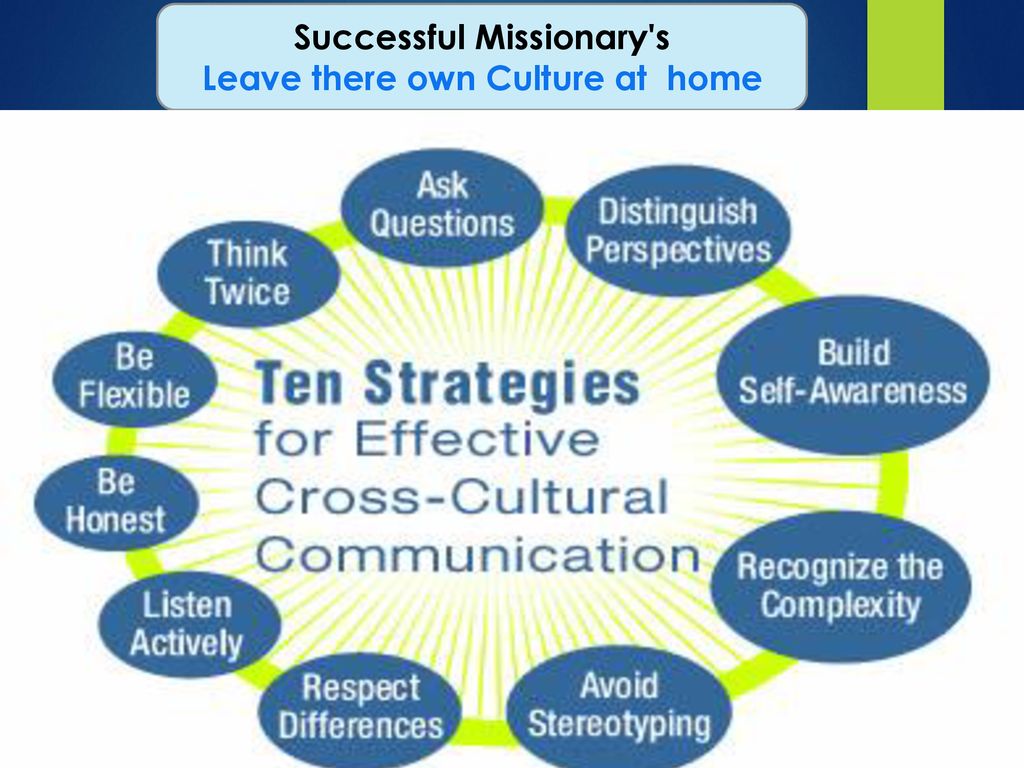 What would you add to this? Which one of these do you practice well? Which of these do you need improvement.
What would you add to this? Which one of these do you practice well? Which of these do you need improvement.
Dr. Don
How to communicate with people: rules and exercises
Published:
What is communication - a process of exchanging words or a complex aspect of people's lives? Is it possible to develop the ability to maintain a conversation, or is it an innate talent? Experienced psychologists Nikolai Kozlov and Svetlana Roiz talk about the importance of communication, its rules and secrets.
Why communication is important
During communication, psychological contact is established between people, and they exchange information, thoughts, ideas, emotions, and influence each other.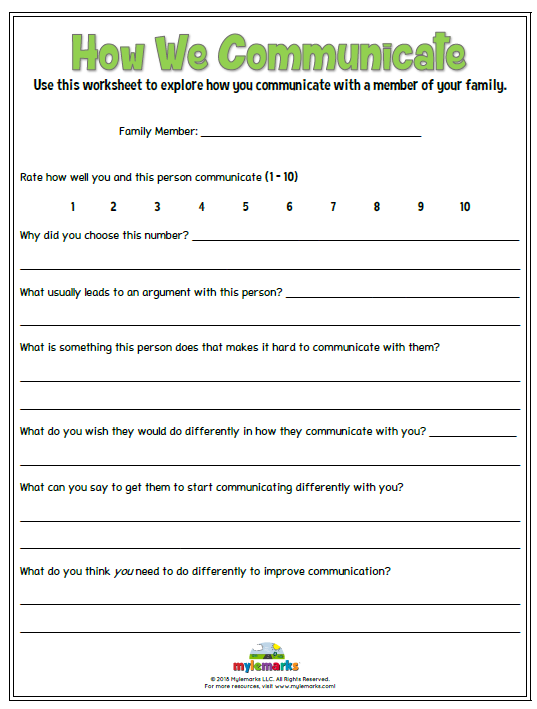 As humanity develops, the intensity and importance of communication increases. The amount of data that needs to be transferred, and the number of opportunities to do so, are also growing. nine0005
As humanity develops, the intensity and importance of communication increases. The amount of data that needs to be transferred, and the number of opportunities to do so, are also growing. nine0005
The psychology of communication is based on the following important aspects:
- Purpose, that is, the reason for the emergence of contact and transmission of information. Animals also communicate with each other, transmit a variety of signals without words in order to satisfy biological needs. Human communications are diverse - cultural, social, aesthetic, creative, cognitive.
- Content is communication data, information, skill or experience, even feelings.
- Means or method of transmitting information. We convey it with the help of words (oral or written), as well as non-verbally (facial expressions, gestures, sound and timbre of the voice). nine0008
So "speaking" and "communicating" are not the same thing. Communication is a complex process that combines verbal communication (what we say) and non-verbal communication (how we do it).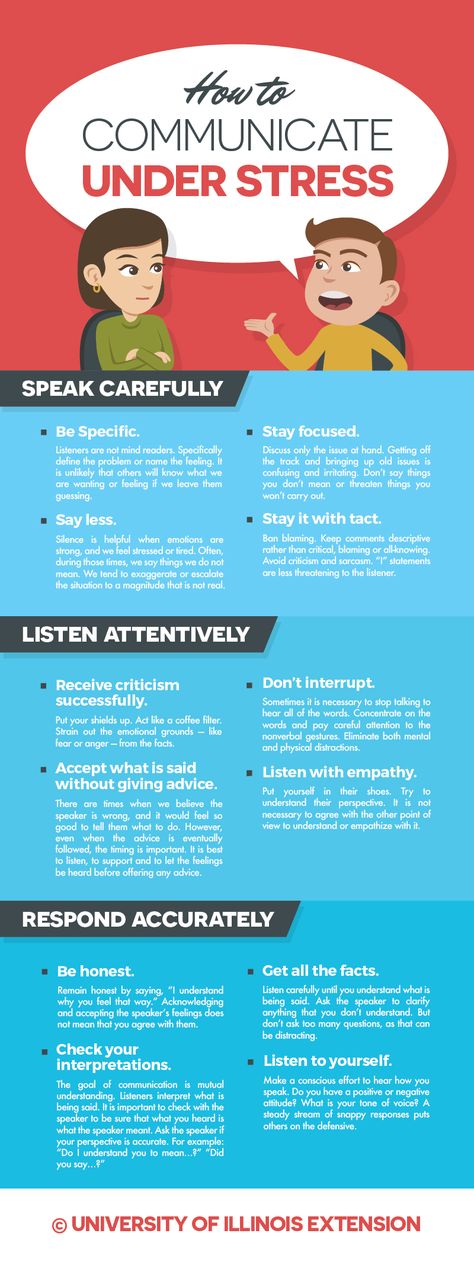 Our thoughts, feelings, and subconscious impulses also participate in it. So, fear, rejection, anger or envy significantly affect the reaction of the interlocutor.
Our thoughts, feelings, and subconscious impulses also participate in it. So, fear, rejection, anger or envy significantly affect the reaction of the interlocutor.
Communication is necessary for a person to:
- interact with people at different levels - from individual to social; nine0008
- understand the transmitted information;
- communicate;
- form new connections and develop them;
- lead and play different roles in society;
- emotional contact.
Such a wide range of functions confirms the importance of communication, and, accordingly, the need to develop this skill, which is emphasized by psychologist Natalya Mikhailova.
In life, this is extremely useful, since communication is closely related to such properties and abilities as:
- Observation. When we note the features of behavior, appearance, facial expressions of the interlocutor, we draw conclusions about what kind of person is in front of us and how to communicate with him.
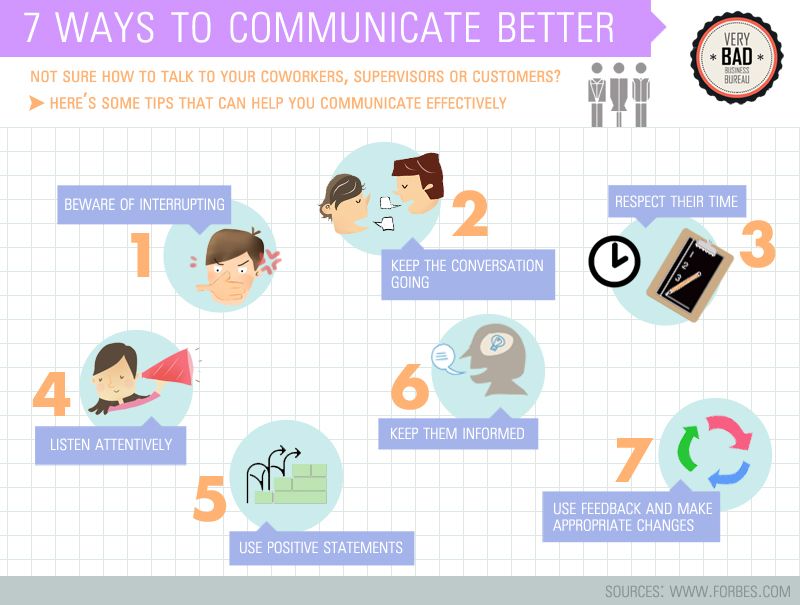 It helps to choose different communication styles.
It helps to choose different communication styles. - Memory. The more information we remember about a person, the more successful communication is. Communication trains memory.
- Broad-minded. Interesting interlocutors are keenly interested in everything that happens around and are able to keep up conversations on any topic.
- Sensitivity. For ordinary communication, it is not required to understand true thoughts and feelings by the slightest contraction of the facial muscles. But knowing the basics of body language and expressing emotions comes as communication skills develop.
Man is inseparable from the process of communication. This means that we have to contact with a variety of people, including those who are unpleasant to us. But even such communication can be built effectively if you master the rules of communication.
Rules of communication and how to learn it
There are simple rules to help you communicate with others.
How to communicate correctly
To find contact in communication with relatives, friends and strangers, family therapist Svetlana Royz recommends a number of rules:
- Get ready for contact. Before starting communication, tune in internally. If you are nervous: take a stable position: sit or stand so that you feel support, balance; give facts that you are sure of; remember the purpose of communication and communicate what is important to you. If the interlocutor provokes emotions, find a point in space or a piece of clothing that will become a symbol of stability and balance. nine0008
- Be open. During communication, show sincere interest in the interlocutor, smile, call the person by name. Mentally help yourself with such phrases: “I see and hear you”, “Your thoughts and your presence are important to me.” Remember that others have the right not to believe, not to love and not to understand, not to agree with the interlocutor. React calmly, be open in dialogue and ask again if in doubt.
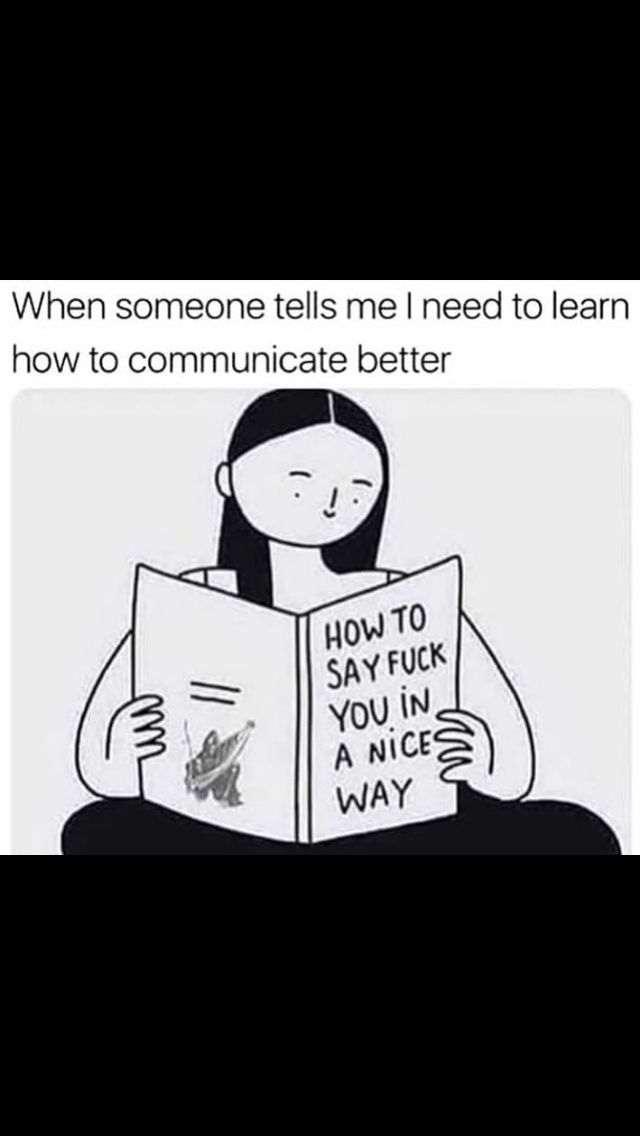
- Show respect. For each interlocutor, it is important to initially have respect. Even when a person makes a mistake or insists on his own, although he is wrong, he wants to be listened to carefully and taken seriously. When communicating, do not get personal and use the pronoun “I” instead of “you” more often. nine0008
- Learn to listen. Showing attention is one of the most important aspects of communication. Listen to the person, ask questions, don't hide your emotions when you hear something new or surprising. At repeated meetings, return to what was discussed earlier. The interlocutor will be pleased if you remember the important moments of his life.
Exercises that will help you learn to communicate
Doctor of Psychology, Professor, Rector of the University of Practical Psychology Nikolai Kozlov reminds that communication skills are not innate, they can and should be trained:
- The more people you communicate with, the easier it is to find a common language with them.
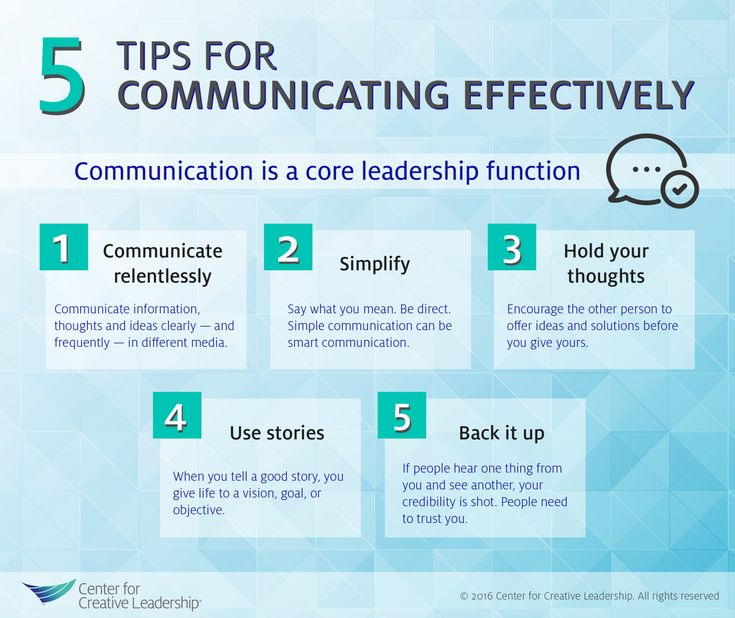 Look for opportunities to talk to strangers, and instead of text messages and emails, call people.
Look for opportunities to talk to strangers, and instead of text messages and emails, call people. - Not only what is important, but also how you say it. Look at the interlocutor openly and with interest, watch for facial expressions of emotions, use smooth and unhurried gestures, keep your palms open. If you repeat the poses and gestures of the interlocutor with a slight delay (mirror them), this will help the person open up and trust you. nine0008
To develop communication skills, use simple exercises:
- "Talk with a chair". Try every day to talk aloud with objects: mentally make a conversation plan and stick to it; Speak for a few minutes on a specific topic. For example, start with how things are going for you. This exercise helps to express thoughts coherently.
- "10 strangers". To get rid of the fear of starting a conversation, set a goal to have a casual conversation with ten strangers every day. So, you can ask the seller's opinion about the product, ask the first person you meet for directions, chat about the weather with the concierge, ask your neighbor for salt.
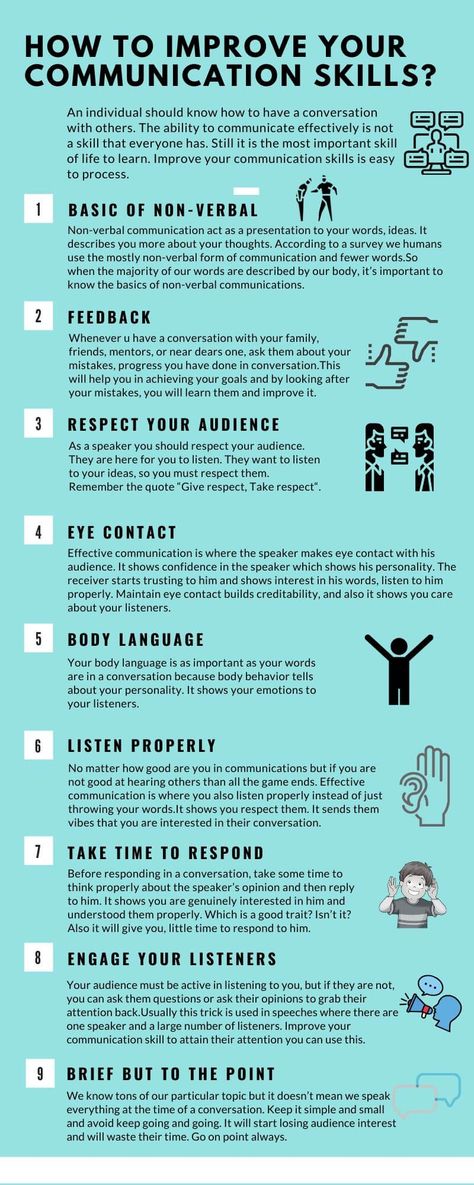 This exercise will expand your social circle. nine0008
This exercise will expand your social circle. nine0008 - "I remember everything." To develop memory, try to remember during the day what others are wearing, what they have in their hands, what color their eyes are, and, of course, what they say. In the evening, check how many details you remember.
- “Praise!” Try during the day to say a compliment to everyone with whom you talk. You can praise appearance or clothes, personal qualities or skills. It is important that the compliments are sincere.
Communication is necessary for a person, and if it is of high quality, it will bring not only pleasure, but also benefit. Work on your communication skills and use them often. The more communication there is in life, the faster it will improve. nine0005
Original article: https://www.nur.kz/family/relationship/1621515-kak-obshchatsya-s-lyudmi-kotorye-tebe-nep/
The ability to communicate is the main tool of a successful person / News / Press Center / Menu / Altai Branch of the RANEPA
Professor of the Department of Psychology and Sociology of Management of the Altai Branch of the RANEPA, clinical psychologist Evgenia Goncharova, shared her expert opinion on How to learn to make contact. nine0005
nine0005
The most important component in the formula for success is the ability to find a common language with people.
Theodore Roosevelt
We all know the role of the ability to communicate with people in our daily life and how important it is to have effective communication skills in a variety of situations and when establishing contact with different categories of people.
The ability to communicate effectively gives you the opportunity to easily and easily establish friendly relations with others, increases your prestige and popularity among colleagues, friends and acquaintances. nine0005
Is there a way to get in contact with anyone? Fortunately, there is such a way.
Any process of communication includes non-verbal and verbal components. With non-verbal contact, we use facial expressions, gestures and other body signals, and with verbal interaction, for communication, we use speech.
With such a wealth of speech, yet most people have difficulty establishing quality contact with other people.
Personality psychology, social psychology have accumulated a significant knowledge base about barriers, styles, communication mechanisms, which became the basis for creating effective ways of communication.
Below are some effective tips that have become the basis for creating effective ways to communicate.
When talking to a person, show him your sincere interest in him and in the subject of your conversation. Give the person a chance to speak. The ability to listen is the main secret of success in establishing communication with people. nine0005
Call the person you are talking to by name.
An important element of effective communication, psychology calls addressing the interlocutor by name. The name is an element of self-identification and carries a strong energy charge. Addressing a person by name, you increase his self-esteem and dispose to a more trusting relationship.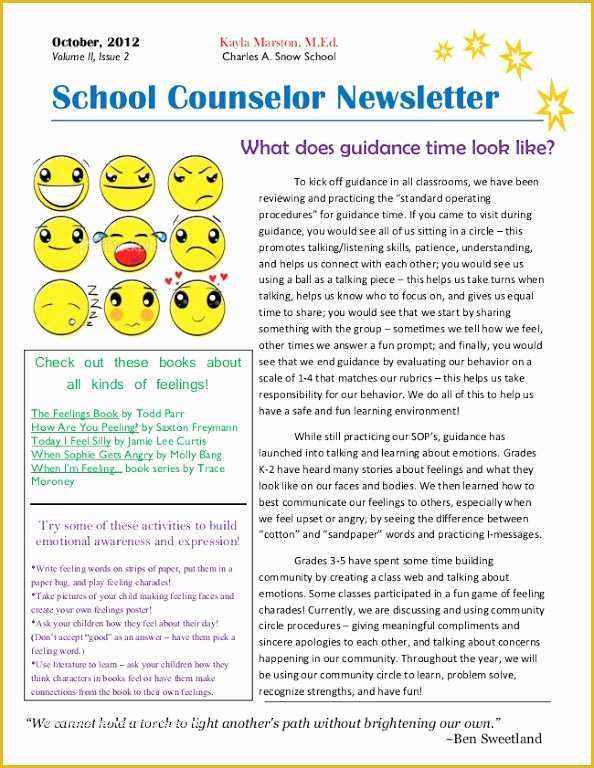
Less talk, listen more. Statistical studies show that most people prefer to talk much more with a person who pays more attention to the interlocutor, and not to himself. nine0005
Listen with your eyes - it is very important to focus on micro-expressions during a conversation. At the heart of this method is the search for the emotion behind the words. The point here is to listen to a person, perceiving what he says, by ear, as well as with his eyes.
Microexpressions disappear very quickly - in less than a second. Anything that lasts longer is a normal facial expression. Why is it so important? Micro-expressions (which are less than a second long) are uncontrollable, so they betray true emotions. Facial expressions (lasting more than a second) can be faked, they may not be real. Therefore, it is very important to look at short flashes of emotions and reflex reactions in order to get the most reliable idea of the interlocutor. nine0005
Expand your horizons . A comprehensively developed person with a wide range of interests and deep knowledge in various fields, it is much easier to establish positive contact with people of different worldviews.
A comprehensively developed person with a wide range of interests and deep knowledge in various fields, it is much easier to establish positive contact with people of different worldviews.
Ask open-ended questions. Try to ask more questions that do not require a simple one-word answer, but give the interlocutor the opportunity to express his opinion. Open questions help to establish contact with a stranger even in situations where, for various reasons, it is difficult to find a “common language”. nine0005
Overcome your subjectivity. It is important to remember that each of us has an individual picture of the world. It is formed under the influence of personal life experience, which we receive from the outside world, with the help of the senses. After all, each of us interprets all events based on our beliefs. Consider this fact when interacting with the interlocutor.
Do not criticize people. Criticism hurts the dignity of a person, hurts his pride, and also arouses feelings of resentment and indignation.